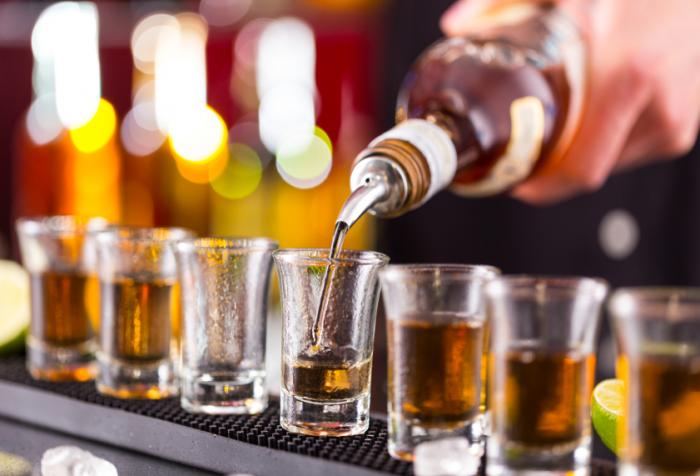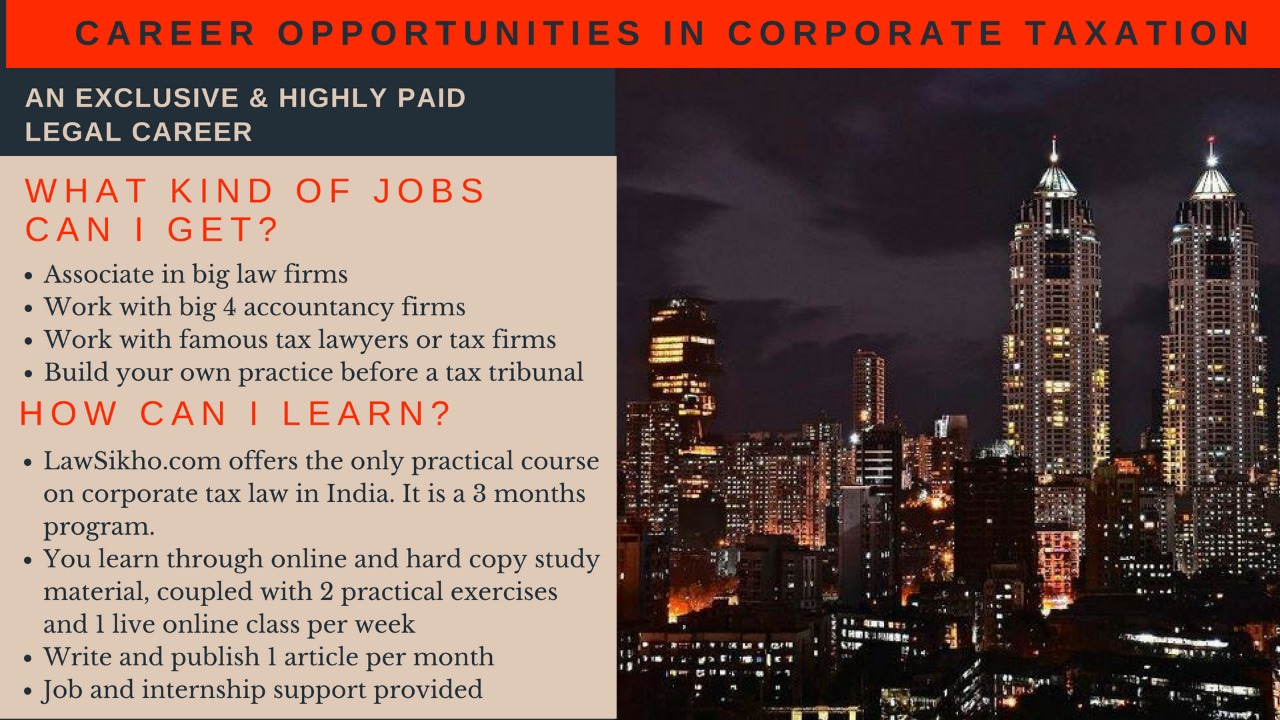This article is written by Harshita Agrawal, a student of Ramaiah College of law and pursuing of Certificate course in Advanced Corporate Taxation from Lawsikho.
Table of Contents
Introduction
The liquor industry has always been a source of revenue for the Government. Last year the RBI in its annual publication “State Finances- A Study of Budgets of 2019-20”, reported that the sale of alcohol pan India for 2019-20 was estimated at Rs 1.75 lakh crores. State budget documents have exhibited that excise duty constitutes the third-largest source of own tax revenue of the Government. Meanwhile, there are few States wherein it constitutes the second-largest source of revenue i.e., West Bengal, Uttar Pradesh and Karnataka. However, during the nationwide lockdown, this industry has seen many pitfalls which have directly affected the revenue of the Government.
In order to conquer the fight over Corona, the Government started finding solutions to combat this issue by introducing reforms like online sale of liquor and levy of Corona fee in a few States. But even after all these attempts, liquor serving in hotels, pubs and restaurants is prohibited in unlock guidelines of States except a few States which we will discuss in the other half of this article.
Powers of State Government
As liquor comes under the State excise duty, every State has its own command over the manufacturing and distribution of liquor in India. The Constitution itself provides this power to the State Government under Entry 51 of State List of Schedule VII which reads as under,
“to regulate and impose duties, excise and such other forms of levies, as it may deem fit, pertaining to “alcoholic liquors for human consumption.”
Alcohol as Essential Commodity
In the wake of Covid-19, Punjab and Kerala Government have included alcohol in essential commodity list to resume the sale of liquor during the lockdown. Section 2A of the Essential Commodities Act, 1955 (“Act”) grants the power to the Central Government for specifying commodities as essential in the schedule if that is necessary for the public interest. However, State Governments can also exercise delegated powers to include certain commodities as essential for their States if it is also done in public interest under Section 5 of the Act.
On the basis of Section 5 of the Act, the Punjab and the Kerala Government have included alcohol in the essential commodity list of the respective States to keep a check on revenue of the State Government.
Online Sale of Alcohol in India
This pandemic has somewhat become productive for some States which have tried to adapt to the changing dynamics of the delivery system. To avoid overcrowding and for facilitating the social distancing norms during lockdown, some States started home delivery of liquor as the prohibition was directly affecting the revenue of the State Governments in the pandemic where Governments were already in financial distress. Following are the States which have started home delivery of liquor in this pandemic situation for the ease of business:
|
State Name |
Date from which Online Delivery Started |
|
Chhattisgarh |
May 5, 2020 |
|
West Bengal |
May 6, 2020 |
|
Punjab |
May 7, 2020 |
|
Tamil Nadu |
May 8, 2020 |
|
Maharashtra |
May 11, 2020 The link for obtaining these permits is: https://exciseservices.mahaonline.gov.in/Home/Listofservices |
|
Jharkhand |
May 20, 2020 |
|
Kerala |
May 21, 2020 https://excise.kerala.gov.in/wp-content/uploads/2020/03/Pass_Instruction.pdf |
|
Odisha |
May 24, 2020 https://osbc.co.in/eToken/Consumer-Manual-Online-Liquor-Order.pdf |
States permitted to serve Alcohol at Hotels
Amidst Covid-19, all the States’ Government prohibited serving of liquor in hotels, bars, pubs and restaurants. Both the consumer and hotel owners were waiting for the Government to resume sale of liquor in hotels in their States but the States were reluctant to do so after seeing the number of Corona positive cases in their States. However, some States Governments took bold attempts to permit the sale of liquor in hotels, pubs and restaurants that include Punjab, Rajasthan and Assam.
By an order dated 2 August 2020, Assam Government permitted the hotels, restaurants and bars to resume the sale of liquors for consumption on premises to customers. Before Assam, the Rajasthan Government released its order on 23 June 2020 to resume sale of liquor at hotels, restaurants and bars by following all the social distancing norms and sanitizing the bar counters properly with disinfectant and following all the guidelines issued in this regard.
Some of the measures included in the order were:
- Social distancing norms should be followed;
- Bar counter and sitting areas should be sanitized properly;
- All the appliances and accessories used in the bar shall be kept cleaned and sanitized;
- Ice container and trolly should be cleaned and sanitized properly;
- All the bottles of wine, liquor and beer should be cleaned with disinfectant;
- All the glass utensils should be washed in warm water and lemon;
- All guidelines prescribed by FSSAI shall be followed
- All the Operational Recommendations for Restaurants issued by the Rajasthan Home Ministry shall be followed.
Following the above SOPs the hotels, bars and restaurants in Rajasthan were running smoothly during the pandemic time.
The situation in Delhi was in a dispute relating to this issue as the crowd in bars may make the situation of pandemic more disastrous to mankind. So taking all the precautions, the Delhi Government issued an order permitting the hotels, restaurants and clubs to serve liquor to the customers. However, the Government did not resume the services of bars.
Resumption of Sale of liquor in hotels, bars and restaurants in Unlock 4
Recently, in Unlock 4 guidelines via MHA Order No. 40-3/2020-DM-I(A) dated 29 Aug 2020, the central Government has resumed the operations of hotels, bars and restaurants at 100% capacity and now serving liquors at hotels, restaurants and bars.
This order gave a relief to the liquor industry as some States have allowed hotels, restaurants and bars to operate according to this Order. From September 7, 2020 sale of liquor at bars will also resume in Delhi vitiating the earlier restriction of sale of liquor in bars. Goa and Maharashtra also resumed its bars and restaurants services at 100% capacity through Unlock 4 guidelines provided MHA guidelines and SOPs is followed. Unlock 4 guidelines also resumed the bars and restaurants services at 100% capacity in Karnataka and West Bengal provided the seating limit should be limited to 50% as per SOP released by the State Government of Karnataka and West Bengal respectively. The Government of Tamil Nadu also has welcomed the MHA order for resuming bar and hotel services, provided they are permitted to sale liquor over the counter for takeaways. Chandigarh Government has also permitted to serve liquors at hotels and restaurants but they have not permitted the same to bars of Chandigarh.
SOPS for Unlock 4 for Hotel Industry
The Ministry of Health and Family Welfare (“MOHFW”) on June 4, 2020 has released SOPs to be followed by the hotel industry during this Covid-19 times. This SOP specifies various precautionary generic and specific measures which need to be followed by hotel and hospitality sectors during Covid-19. As there are no specific SOPs released by the MOHFW for serving liquor at hotels, the same SOP of June 4, 2020 needs to be followed till the time the new SOP comes for this subject matter. Some of the guidelines issued are:
- Mandatory hand hygiene should be there at entrance;
- Entrance should be given only to asymptomatic staff and guests;
- Entrance should be given only if staff or guest are wearing face mask/cover;
- Other measures as specified in this SOP shall be followed.
Though this SOP was released, there is a need for a general SOP for States which have allowed serving of liquors at hotels, restaurants and bars because its application and function is different and needs more strict norms to be followed similar to Rajasthan SOP for hotels serving liquor on premises.
The person who violates any of the measures specified in the SOPs would be liable to penal actions against him.
Penalties for transgressing SOPS
In the same order, the Central Government has also issued guidelines for offences and penalties for violation of SOPs and MHA Order dated 29 August, 2020. Proceedings against any person violating these measures will be taken under the realms of Disaster Management Act, 2005(“Act”). Section 51 to 60 of the Act and Section 188 of Indian Penal Code, 1860 (“IPC”) will be attracted against the offenders of these measures.
Section 51 will be levied on if any person obstructs any officer/employee of the Central Government or State Government or any authorised person by National Authority or State Authority or District Authority. This Section will also get attracted when a person refuses to comply with any directions or orders of the Central Government/ State Government/National Executive Committee/ State Executive Committee/ District Committee under this Act.
The offender under this provision on conviction will be imprisoned for a term which may extend to 1 year or with fine, or both, and if such refusal to comply or obstruction results in loss of human lives or imminent danger to someone’s health, he may be liable to imprisonment up to 2 years as per this provision.
Further, Section 188 of IPC will be charged on a person if he disobeys the order of a public servant. According to this provision, imprisonment upto 1 month or fine or both would be granted to the offender and if due to the disobedience loss of human’s life results then the offender would be liable to imprisonment upto 6 (Six) months or with a fine of Rs. 1000/- or both.
The hotel industry would also be liable if the offence is by the company. According to Section 58 of the Act, every person of the company who at the time of commission of offence, was responsible or was in charge to conduct the affairs of the Company (“Hotel”), shall be deemed to be guilty of the offence and shall be punished accordingly. Nothing contained in clause (1) of Section 58 of the Act will apply if any person liable to any punishment under this Act, proves that the offence was committed without his knowledge or he had exercised due diligence to prevent the commission of the offence.
The Director, manager, secretary or other officers of the Hotel will also be liable under clause (2) of Section 58 of the Act if it is proved that the offence was committed due to negligence or permission or knowledge or connivance on the part of the person(s) specified above.
Conclusion
The Covid-19 situation has brought a revolutionary change in the liquor industry and has affected the spontaneous growth of this industry as many States are unable to cope up with the changing times of the need. Some states have started the sale of liquor at hotels, bars and restaurants and still there are many States which have not initiated this due to the increasing positive cases in their States. This industry will require more time to function normally due to the restrictions and dangers this industry is subject to in these pandemic times. However, some states have taken bold steps to save this industry and brought a big reform in this industry by selling online liquors in food delivery apps like Swiggy and Zomato. Even if the hotel industry is not working smoothly in every State, each State Government shall start online delivery of liquor to foster the growth in this sector and to increase the revenue at these pandemic times. Because this can be the only one-stop solution for every state Government to manage their own tax revenue source.
LawSikho has created a telegram group for exchanging legal knowledge, referrals and various opportunities. You can click on this link and join:
 Serato DJ Crack 2025Serato DJ PRO Crack
Serato DJ Crack 2025Serato DJ PRO Crack











 Allow notifications
Allow notifications


